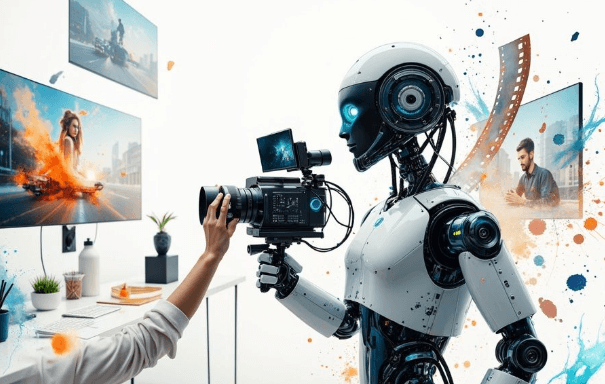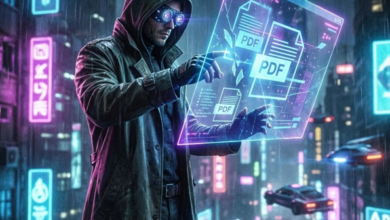AI in Video Production: What You Need to Know

AI is significantly altering video production processes. It streamlines editing, automates routine tasks, and enhances storytelling through advanced algorithms. Filmmakers can now focus on creativity while AI analyzes footage for optimal impact. However, this shift also introduces ethical dilemmas regarding content authenticity and privacy. As the industry evolves, understanding these changes becomes crucial. What implications will these advancements hold for the future of filmmaking?
The Role of AI in Video Editing
Efficiency in video editing has been revolutionized by the integration of artificial intelligence.
AI algorithms streamline complex editing techniques, enabling editors to automate mundane tasks and enhance productivity. By analyzing footage and suggesting optimal cuts, these algorithms empower creators to focus on their artistic vision.
This technology fosters a new era of freedom in video production, allowing for innovative storytelling without the constraints of traditional methods.
Enhancing Storytelling With AI Tools
As filmmakers seek to captivate audiences, AI tools emerge as powerful allies in enhancing storytelling.
By leveraging AI narratives, creators can craft compelling plots that resonate deeply.
Additionally, emotion analysis allows for precise tuning of scenes, ensuring that emotional beats align with audience reactions.
This synergy between technology and creativity empowers filmmakers to explore innovative narratives and evoke profound emotional experiences.
See also: How AI Improves Business Presentations With Smart Design
Automating Production Workflows
While traditional production workflows often involve cumbersome manual processes, the integration of AI technologies streamlines operations, significantly reducing time and costs.
Automated scheduling enhances project timelines, allowing teams to allocate resources more effectively.
Workflow optimization facilitates smoother collaboration among departments, ensuring that each stage of production flows seamlessly.
Ultimately, AI empowers creators to focus on their vision, liberating them from tedious logistics.
Future Trends in AI and Video Production
With advancements in AI constantly evolving, the future of video production is poised for revolutionary changes.
Emerging technologies will enable the creation of highly personalized content, tailoring experiences to individual viewer preferences.
However, as these capabilities expand, ethical considerations surrounding data privacy and content authenticity will become paramount.
Balancing innovation with responsibility will shape the landscape of video production in the years to come.
Conclusion
In conclusion, AI’s integration into video production not only streamlines workflows but also enriches storytelling, blending efficiency with creativity. As algorithms evolve, they promise to refine narrative delivery and audience engagement. However, the pursuit of innovation must be tempered with ethical considerations regarding authenticity and privacy. The future of video production lies in finding harmony between technological advancement and the preservation of artistic integrity, ensuring that creativity flourishes in a responsible digital landscape.




